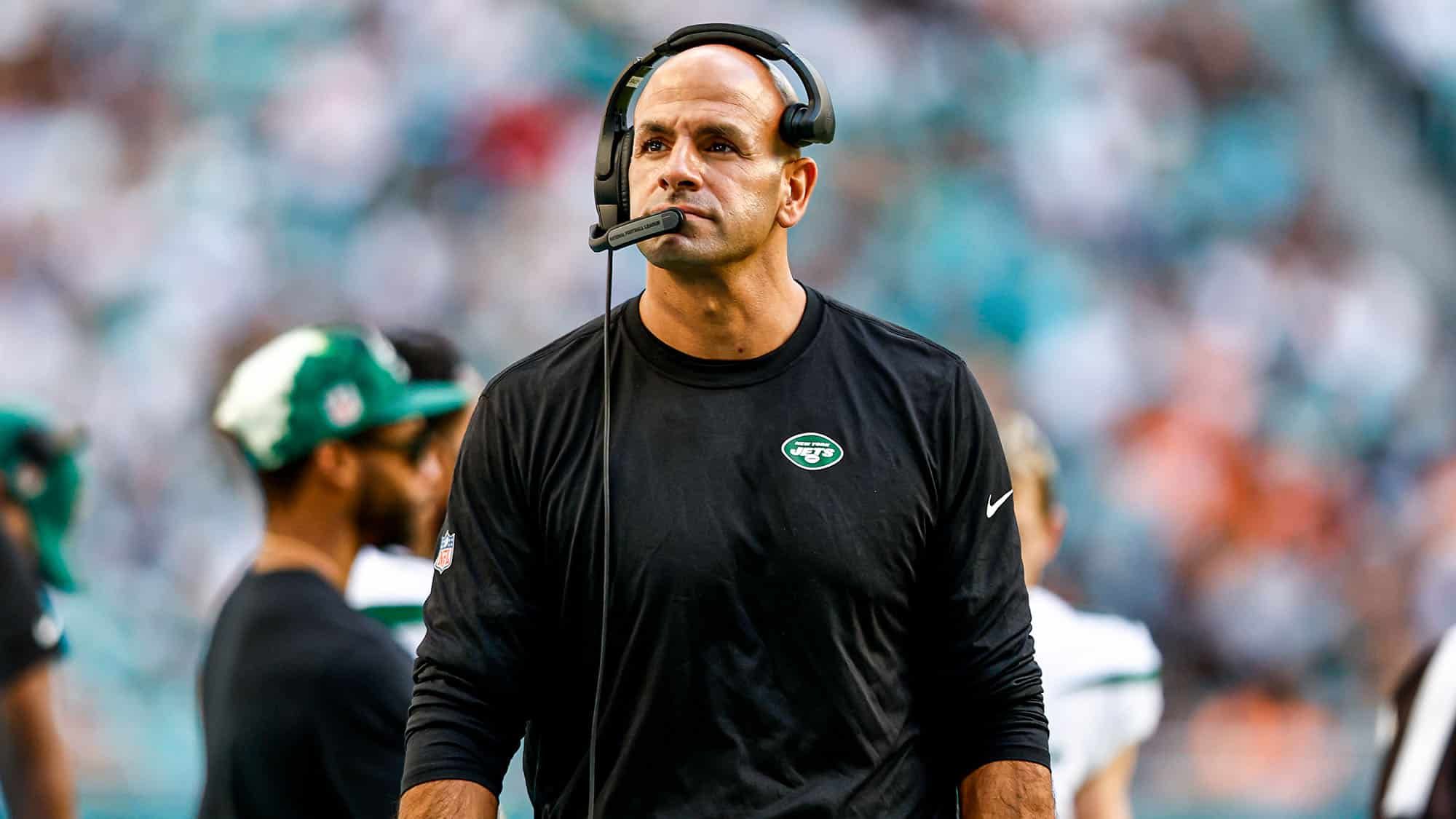New York Jets head coach Robert Saleh might be a better game manager than given credit for
In his second season as the New York Jets‘ head coach, Robert Saleh made some clock-managing mistakes on gamedays that drew him the ire of fans.
However, according to a recent study by The Ringer, Saleh might be getting too much flack for his clock management.
The article, by Steven Ruiz, analyzes the value that timeouts have on a team’s chances of winning the game. It concludes that timeouts are most valuable when used in the final four minutes of a half – and by a wide margin, too. This means that if a timeout is used prior to the final four minutes, it lays a significant dent in the team’s win probability.
“Brian Burke, ESPN’s director of analytics, found in 2014 that each timeout is worth about 3.1 points of win probability,” Ruiz writes. “Coaches get six timeouts a game, meaning that can stack up.”
Timeouts have such a large effect on the outcome because there is a huge disparity in their value based on when and how they are used. Timeouts used prior to the final four minutes have essentially no impact on a team’s chances of winning, while timeouts used in the final four minutes can be very valuable. So, by wasting an asset that could yield positive value later on just to get a net-zero value in the present, it’s an overall net-negative.
Ruiz described how two particular types of timeouts are negatively impactful on a team’s win probability: timeouts that are used to avoid delay-of-game penalties and timeouts used for “operational” purposes (i.e. when teams call a timeout to get the play-call they want).
Because of how valuable timeouts are at the end of a half, it is actually better to take a delay-of-game penalty than to use the timeout to save five yards. Those five yards are not worth burning a timeout that could buy you extra plays at the end of the half.
As it pertains to operational timeouts, the key point is this: teams across the league have generally not produced much better when calling plays out of a timeout versus not, so calling a timeout to get into a different play-call tends to be a waste.
“Only two teams—the Dolphins and the Ravens—managed to extract surplus value from their operational timeouts [in 2021],” said Josh Hersmeyer of FiveThirtyEight, who is cited in Ruiz’s article. “Whatever benefit the other 30 teams received from stopping the clock and regrouping before the end of the half (or game) didn’t come close to covering the costs of the timeouts they spent to purchase those precious extra seconds.”
Ruiz tallied the number of wasted timeouts that each team burned in the 2022 season. This includes three types of timeouts:
- “Operational” timeouts (Used to get into the right play-call)
- Timeouts for avoiding delay-of-game
- Lost challenges
Here are the top 5 teams/coaches who wasted the fewest timeouts:
- Nick Sirianni, Eagles (12)
- Robert Saleh, Jets (14)
- Arthur Smith, Falcons (14)
- Mike McCarthy, Cowboys (14)
- Brandon Staley, Chargers (14)
Robert Saleh was charged with wasting only 14 timeouts in 2022, tying him for the second-fewest of any coach. The Jets were tallied with 9 operational timeouts, 3 lost challenges, and 2 timeouts to avoid a delay-of-game.
The median number of wasted timeouts for an NFL team in 2022 was 20. So, Saleh saved about 6 timeouts compared to the average coach.
Going off the article’s estimated win probability value of 3.1 points per timeout, Saleh’s ability to avoid wasting timeouts added about 18.6 points of win probability over the course of the season compared to the average coach. Over 17 games, that equates to slightly above a 1% boost in the Jets’ chances of winning each game.
Saleh certainly has some areas where he can improve his game management, but at the very least, it does appear that he is doing a great job of saving his timeouts for when they matter most.

